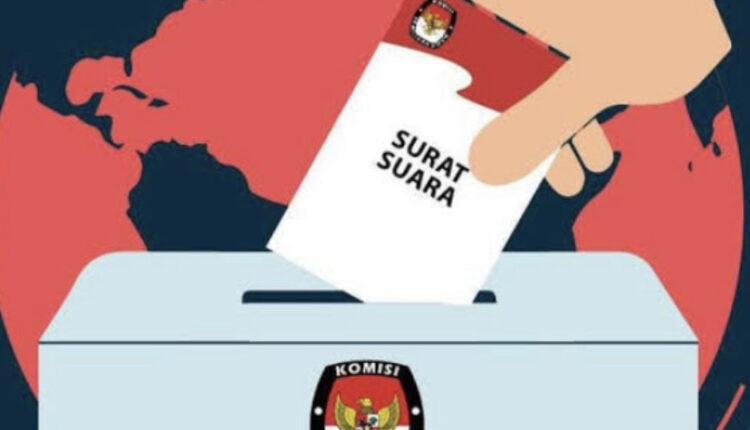Supporting the Role of Religious Leaders to Realize Peaceful Elections
By : Ananda Prameswari )*
Peaceful general elections (Pemilu) of course require efforts from various parties, one of which is religious leaders who have an influence on the social life of society. Religious leaders, in this case the ulama, in their position as informal leaders in society have an important and strategic role. They strengthen moral and spiritual ethics and enlighten the people with the teachings of Islamic values. In the modern world, the roles, functions and responsibilities of ulama have of course never been replaced.
On the occasion of the IV MUI Kaltara Regional Coordination Meeting in 2023, the Governor of North Kalimantan (Kaltara), Drs. H. Zainal Arifin Paliwang, SH, M.Hum hopes that the results of this activity can be used as guidance for the people and the government in carrying out development.
The governor also emphasized that ulama should not remain silent, let alone be apathetic towards conditions and phenomena occurring in society. Ulama are expected to stand at the forefront to voice the truth and prevent damage to society.
As we all know, soon Indonesia will enter the year of regional elections and simultaneous elections in 2024. Therefore, Zainal invites the MUI, as an organization that accommodates ulama in Indonesia, to have a strategic role in providing enlightenment and learning about healthy and ethical politics. to the community.
In particular, Zainal said that the North Kalimantan MUI could play an active role in socializing the importance of honest, fair and integrity elections, simply because it was a form of support for holding peaceful elections.
The government promotes Religious Moderation as a strategy to support policies for developing religious harmony in Indonesia and responding to existing diversity. This is in line with President Jokowi’s statement that Religious Moderation is the right choice and is in line with the spirit of Pancasila amidst the wave of extremism in various parts of the world.
Democratic values recognize that difference and diversity are realities that must be accepted and celebrated. Because diversity will produce innovation and creativity which is positive energy for the nation’s progress.
A moderate attitude in religion must be developed and strengthened considering that there is a group of people who have excessive/extreme religious views, attitudes and practices, impose their will on religious interpretations accompanied by religious enthusiasm that is not in harmony with national love within the framework of the Republic of Indonesia.
Activities to strengthen Religious Moderation in the form of FGDs, workshops and the like are certainly needed to target the grassroots including the youth community who generally have wide access to the internet and information.
On a different occasion, Internal Deputy Chair of the National Human Rights Commission (Komnas HAM) Pramono Ubaid Thantowi highlighted the issue of freedom of religion and belief in the 2024 elections. He said that the issue of human rights violations related to religious freedom would increase as political contestation got closer.
Religious leaders need to realize that discrimination and politicization of religion is something that is very contrary to the State ideology of Pancasila and can have an impact on the disintegration of the nation. On this basis, all forms of ideas that lead to politicization of religion or discriminatory identity politics in the name of religion must be avoided. More advanced in organizing the 2024 elections.
Politicization of religion for the sake of certain powers can also give rise to religious violence. Politicization of religion can take the form of intolerance, persecution and discrimination. Ignoring this will of course damage the social order and destroy diversity.
The politicization of SARA, especially the politicization of religion, can also divert people from looking at the qualities and programs of candidates to just looking at the primordial identities attached to the candidate. However, there is no guarantee that a candidate who adheres to a certain religion or comes from a certain ethnicity will be a great and credible leader.
Meanwhile, in order to support peaceful elections, Plh. Head of the Office of the Ministry of Religion, Ngada Regency, NTT, Antonius We, invited all religious and community leaders in Ngada Regency to practice religious moderation and peaceful elections in 2024 through the Forum for Religious Harmony.
Antonius We explained that the Religious Harmony Forum (FKUB) of Ngada Regency continues to be active with concrete programs which are likely to be the answer to the needs of the religious community in Ngada Regency. He also explained that religious moderation means not being an extreme and excessive person when carrying out the teachings of his religion.
Regarding the 2024 Peaceful Election, Antonius invited all participants to uphold the principle of deliberation and consensus in responding to every problem that arises in society, including problems between religious communities. Peaceful elections are certainly the hope of all of us as a forum for inspiration, not as a tool for aspirations for one-sided interests.
Holding peaceful elections requires the role of many parties, including religious leaders. Religious figures are considered capable of reducing social friction caused by religious sentiment. One way is to maintain good relations with everyone.
)* The author is a Media Space Contributor
